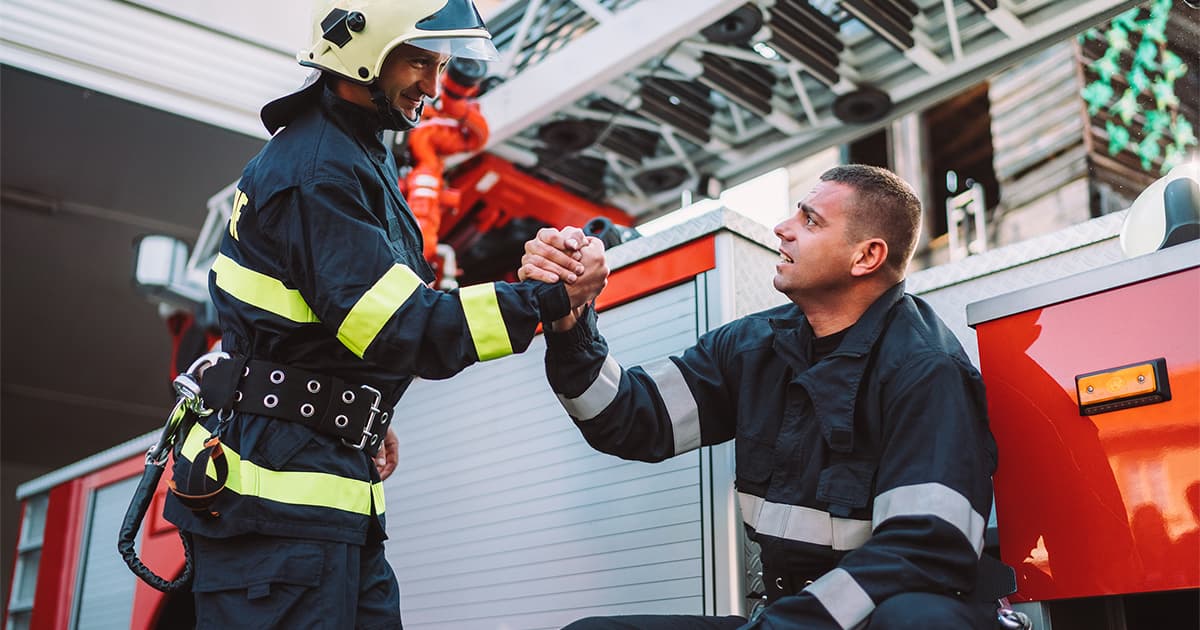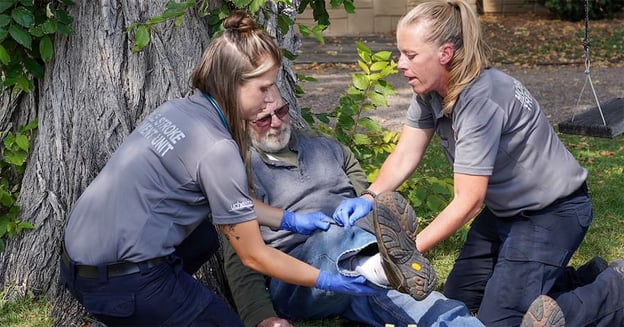Pulsara Around the World - February 2026
January Recap The start of 2026 was on the slow side for our events schedule, with our team heading to the Florida Fire & EMS Conference, the...
3 min read
 Team Pulsara
:
Aug 20, 2021
Team Pulsara
:
Aug 20, 2021

EDITOR'S NOTE: Special thanks to Colin Moravec for writing today's blog post. You can connect with him on LinkedIn.
COVID-19 has brought about a lot of challenges and changes in the healthcare industry. EMS agencies are BUSY. They have been pushing themselves to the max supporting their communities and putting themselves in harm’s way to help their communities through the COVID-19 pandemic.
EMS agencies embody the value of grit. They get the job done at all costs, regardless of obstacles. This value is what makes EMTs and paramedics unique. They stay cognizant of their role in the community and in the chain of medical care, and they execute their job faithfully, regardless of the environment. This value of gritty determination makes up the culture of many EMS agencies and EMT professionals.
Organizational culture is “a pattern of shared basic assumptions learned by a group as it solves its problems.”1 It's the shared beliefs and values established by leaders and then communicated and reinforced in the environment, which ultimately shape team member perceptions, behaviors, and understanding.

Organizational culture is important. It can make or break an employee's experience at an organization, and it's often a deciding factor in whether or not an employee decides to stay with the organization or seek employment elsewhere.
As an organization’s culture persists, it becomes institutionalized and more resistant to change. The status quo makes it hard for organizations to grow, adapt, and solve new problems. As the organization grows and faces new challenges, the old cultural values, which proved very valuable earlier in the agency's growth, may need to be modified to address the new challenges. Often, if there is not a shift in culture in the face of these new challenges, burnout, and lack of inclusion can result in team member turnover.
COVID-19 was—and still is—a new challenge that requires new ideas, innovative perspectives, and collaborative problem-solving. While we are continuing to experience this long-term challenge, it is important to jointly build, develop, and maintain a healthy organizational culture.
This requires time and input from every member of the group. The more collaborative problem solving and input you can get as leaders of the organization, the more buy-in you'll see, and the more positive organizational culture you'll build.
COVID-19 has put a spotlight on the value of EMS agencies as an integral part of the healthcare industry’s infrastructure. With that spotlight, it is important to critically examine and reflect on how an organization’s culture and values can be improved to reflect and support the individuals that work at those organizations.

EMS leaders can intentionally build and foster a positive environment by keeping in mind these three levels of organizational culture. Understanding these elements can help you strive to build a positive culture that will put your organization in a great position to take on the challenges that come its way.
Artifacts are the feeling, observable characteristics, and practices one feels when you walk into the organization.1 Think of the sense of camaraderie when you walk into your agency to start your shift, or that feeling of pride when you jump into your rig. Artifacts are more easily changed and can be as simple as turning on music or rearranging the office to create a more collaborative and inviting environment.
Values take more time to develop but are truly built by completing tasks as a group. Agency leaders can foster values-building on a daily level through working and sharing these values with their team. The more individual input into creating values, the more buy-in and more holistic organizational culture that will be developed. Values will change, so it is important to revisit this periodically to ensure that you continue to consider new values as you grow and overcome new challenges.
Underlying assumptions are values but take longer to develop and are always perceived to be true. These assumptions take a long time to define and work out, but once established, this can provide a successful framework to build a culture that is lasting and that your team members truly believe in. These well-developed underlying assumptions will ultimately lead your agencies to operate at the highest and most efficient level.
Building a positive organizational culture takes resources, time, and support from all levels of the organization. It is especially important for the leaders of the organization. They have the power to grow and shape the culture that best fits their agency’s goals. With the spotlight of COVID-19 still on our EMS agencies, now is one of the most important times to collaboratively build a new positive culture within your organization.
1. Edgar H. Schein, Organizational Culture and Leadership (Hoboken: Wiley, 2017).
Pulsara is helping with COVID-19 management by helping mitigate patient surge, streamlining patient transfers, minimizing exposure, and more. Learn more about COVID-19 + Pulsara here.

January Recap The start of 2026 was on the slow side for our events schedule, with our team heading to the Florida Fire & EMS Conference, the...

Recent research shows how Pulsara was successfully leveraged to connect more than 6,000 COVID-19 patients to monoclonal antibody infusion centers via...

At Pulsara, it's our privilege to help serve the people who serve people, and we're always excited to see what they're up to. From large-scale...